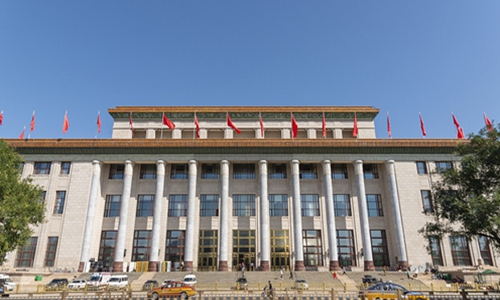HOME >> CHINA
NPC abolishes custody-and-education system for prostitutes, johns
Source:Global Times Published: 2019/12/29 19:39:34

Photo: VCG
China abolished the controversial custody-and-education regulation for sex workers on Sunday, a regulation that led to the detention of prostitutes and occasionally their customers for up to two years without trial.Those held in detention centers under the regulation will be released after the Standing Committee of the National People's Congress (NPC), which is China's top legislature, approved the decision on Saturday, the Xinhua News Agency reported.
The law has lasted for more than 20 years in China and played a key role in "re-educating sex workers and maintaining social order," said Xinhua.
Prostitution is illegal in China: Prostitutes and their customers face up to 15 days' detention and fines up to 5,000 yuan ($715), according to China's law.
In 2014, Huang Haibo, an actor known for wholesome TV roles, was detained in Beijing for soliciting prostitutes.
Huang was sent to an "education center" for six months, which sparked heated discussion online and some legal professionals to call for the abolition of detention and education.
In May 2014, a joint letter suggesting the system be abolished was sent by 108 people including former legislative staff, legal professionals and women's rights activists to the NPC Standing Committee.
Even though the regulations technically targeted both sex workers and their clients, statistics from the Ministry of Public Security showed that 88 percent of 108 studied centers were solely used to detain sex workers.
A 2012-13 survey by NGO Asia Catalyst and its partners involving 30 female sex workers and a police officer in northern China showed that 24 were detained from six months to one year.
Some police at the centers took indecent pictures of sex workers and even used violence to force them to confess. Other police even attempted to extort bribes in return for the release of sex workers.
In December 2013, China formally abandoned the re-education through labor system, a similar type of punishment that allowed police to detain people for up to four years without trial.
In 2003, China abolished the custody and repatriation system: an administrative procedure by which police detained people who did not have a valid household registration card or temporary living permit and then returned them to a place where they could legally live or work.
The custody system was abolished after the death of Sun Zhigang, a 27-year-old migrant worker who died from a savage beating in detention in Guangzhou, South China's Guangdong Province.
Global Times
Posted in: SOCIETY